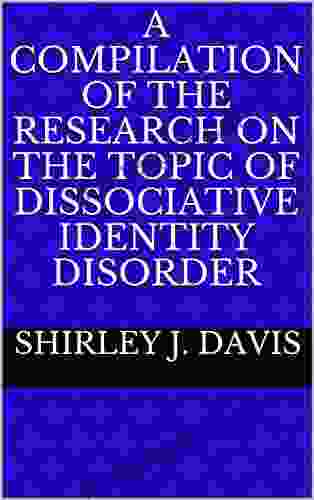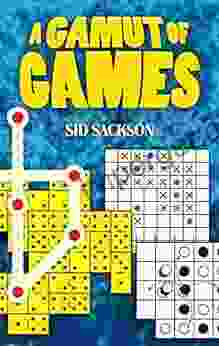Delve into the Enigmatic World of Dissociative Identity Disorder: A Comprehensive Examination

Dissociative Identity DisFree Download (DID),once known as Multiple Personality DisFree Download, is a complex and fascinating mental health condition that has captivated the interest of professionals and the public alike. Characterized by the presence of two or more distinct identities or personality states that recurrently take control of an individual's behavior, DID presents a unique challenge to diagnosis and treatment. This article aims to provide a comprehensive overview of the research on DID, shedding light on its causes, symptoms, diagnosis, and treatment approaches. By exploring the latest scientific findings and case studies, we hope to demystify this enigmatic condition and promote a deeper understanding of its impact on individuals and society.
The exact causes of DID remain unknown, but a combination of genetic, environmental, and psychological factors are believed to play a role. Research suggests that childhood trauma, particularly severe and prolonged abuse, is a significant risk factor for developing DID. The theory of structural dissociation posits that overwhelming and repeated traumatic experiences can lead to a fragmentation of the personality as a defense mechanism, allowing the individual to compartmentalize and cope with the unbearable pain.
DID manifests itself through a range of symptoms, including:
5 out of 5
| Language | : | English |
| File size | : | 1972 KB |
| Text-to-Speech | : | Enabled |
| Screen Reader | : | Supported |
| Enhanced typesetting | : | Enabled |
| Word Wise | : | Enabled |
| Print length | : | 468 pages |
| Lending | : | Enabled |
- Presence of two or more distinct identities: These identities may have different names, ages, genders, and memories. They can exhibit contrasting personality traits, beliefs, and behaviors, and may even speak in different voices or accents.
- Amnesia or memory loss: Individuals with DID often experience gaps in their memory, particularly for traumatic events. They may have difficulty recalling important personal information or recent events.
- Depersonalization and derealization: Feelings of detachment from oneself or the surrounding environment can be common. Individuals may feel like they are observing themselves from a distance or that the world around them is unreal.
- Self-harm and suicidal ideation: Self-destructive behaviors and thoughts of suicide are prevalent in individuals with DID as they struggle to cope with the internal turmoil and fragmentation.
- Somatic symptoms: Physical symptoms, such as chronic pain, headaches, and gastrointestinal problems, can also be associated with DID. These symptoms may be difficult to explain by medical tests and are often related to the emotional distress and trauma experienced by the individual.
Diagnosing DID can be challenging due to its complex and multifaceted nature. Clinicians rely on a thorough clinical evaluation that includes:
- Patient history and interview: A detailed account of the individual's symptoms, experiences, and history of trauma is crucial.
- Observation of identity states: The clinician observes the individual's behavior and interactions to identify different identities or personality states.
- Psychological testing: Tests such as the Dissociative Experiences Scale (DES) and the Structured Clinical Interview for Dissociative DisFree Downloads (SCID-D) can aid in assessing dissociative symptoms and establishing a diagnosis.
Treatment for DID aims to stabilize the individual's symptoms, promote integration of the fragmented aspects of the personality, and address the underlying trauma. Therapies commonly used include:
- Trauma-focused therapy: This approach focuses on processing and resolving the traumatic experiences that contributed to the development of DID. Techniques such as Eye Movement Desensitization and Reprocessing (EMDR) and trauma-informed cognitive behavioral therapy (CBT) can be effective in reducing symptoms and improving overall functioning.
- Ego state therapy: This type of therapy involves working with each identity state individually, helping them to understand their role and purpose within the system. It aims to promote communication and cooperation among the different identities.
- Medication: Medications such as antidepressants, antipsychotics, and mood stabilizers may be prescribed to manage co-occurring psychiatric symptoms such as anxiety, depression, and psychosis.
The prognosis for individuals with DID varies depending on a number of factors, including the severity of the symptoms, the level of support available, and the individual's motivation for recovery. With appropriate treatment, many individuals with DID can achieve significant improvements in their symptoms, functioning, and overall well-being. Complete integration of the different identities is not always possible, but managing the symptoms and promoting a cohesive sense of self can lead to a meaningful and fulfilling life.
DID has been portrayed in popular media, often sensationalized and stigmatized. Misconceptions and misunderstandings about the condition persist, leading to discrimination and prejudice against individuals who experience it. It is essential to dispel these myths and promote an accurate understanding of DID based on scientific research.
Dissociative Identity DisFree Download is an intriguing and complex mental health condition that presents unique challenges for individuals and clinicians alike. By delving into the latest research findings and case studies, we gain a deeper understanding of its etiology, clinical presentation, diagnosis, and treatment approaches. As we continue to explore and unravel the mysteries of DID, we can work towards reducing stigma, promoting understanding, and empowering individuals with the condition to live fulfilling lives.
5 out of 5
| Language | : | English |
| File size | : | 1972 KB |
| Text-to-Speech | : | Enabled |
| Screen Reader | : | Supported |
| Enhanced typesetting | : | Enabled |
| Word Wise | : | Enabled |
| Print length | : | 468 pages |
| Lending | : | Enabled |
Do you want to contribute by writing guest posts on this blog?
Please contact us and send us a resume of previous articles that you have written.
 Book
Book Novel
Novel Page
Page Chapter
Chapter Text
Text Story
Story Genre
Genre Reader
Reader Library
Library Paperback
Paperback E-book
E-book Magazine
Magazine Newspaper
Newspaper Paragraph
Paragraph Sentence
Sentence Bookmark
Bookmark Shelf
Shelf Glossary
Glossary Bibliography
Bibliography Foreword
Foreword Preface
Preface Synopsis
Synopsis Annotation
Annotation Footnote
Footnote Manuscript
Manuscript Scroll
Scroll Codex
Codex Tome
Tome Bestseller
Bestseller Classics
Classics Library card
Library card Narrative
Narrative Biography
Biography Autobiography
Autobiography Memoir
Memoir Reference
Reference Encyclopedia
Encyclopedia Wim Hof
Wim Hof Terry Anne Scott
Terry Anne Scott William Craig
William Craig William Carlos Williams
William Carlos Williams Tylluan Penry
Tylluan Penry Steve Sobczak
Steve Sobczak Wendy Jackson
Wendy Jackson Christopher Berry Dee
Christopher Berry Dee Ray Westlake
Ray Westlake Ted Klontz
Ted Klontz Thomas Medonis
Thomas Medonis The Washington Post
The Washington Post Shayne Moore
Shayne Moore Helga Turku
Helga Turku Susan B Sorenson
Susan B Sorenson Department Of The Army
Department Of The Army William J Metzger Esq
William J Metzger Esq Olaudah Equiano
Olaudah Equiano Ned Sublette
Ned Sublette Terri Leclercq
Terri Leclercq
Light bulbAdvertise smarter! Our strategic ad space ensures maximum exposure. Reserve your spot today!

 Robert Louis StevensonTeaching Kids How To Manage Their Anger: A Comprehensive Guide for Parents...
Robert Louis StevensonTeaching Kids How To Manage Their Anger: A Comprehensive Guide for Parents... Ernest ClineFollow ·7.8k
Ernest ClineFollow ·7.8k Ken SimmonsFollow ·4.8k
Ken SimmonsFollow ·4.8k Jackson HayesFollow ·18.7k
Jackson HayesFollow ·18.7k Willie BlairFollow ·8.2k
Willie BlairFollow ·8.2k Roland HayesFollow ·15.9k
Roland HayesFollow ·15.9k John Dos PassosFollow ·8.2k
John Dos PassosFollow ·8.2k Jerome BlairFollow ·18.9k
Jerome BlairFollow ·18.9k Jaylen MitchellFollow ·4.9k
Jaylen MitchellFollow ·4.9k

 Everett Bell
Everett Bell12 Horrific American Serial Killers: A Spine-Chilling...
Immerse yourself in the darkest recesses of...

 Ross Nelson
Ross NelsonDiscover the Enchanting World of "All That Love...
Prepare to embark on an...

 Cooper Bell
Cooper BellUnveiling the Secrets of Shoulder-Launched Munitions: The...
: Unlocking the World of Shoulder-Launched...

 Boris Pasternak
Boris PasternakHow Chance and Stupidity Have Changed History: A...
Prepare yourself for...
5 out of 5
| Language | : | English |
| File size | : | 1972 KB |
| Text-to-Speech | : | Enabled |
| Screen Reader | : | Supported |
| Enhanced typesetting | : | Enabled |
| Word Wise | : | Enabled |
| Print length | : | 468 pages |
| Lending | : | Enabled |














